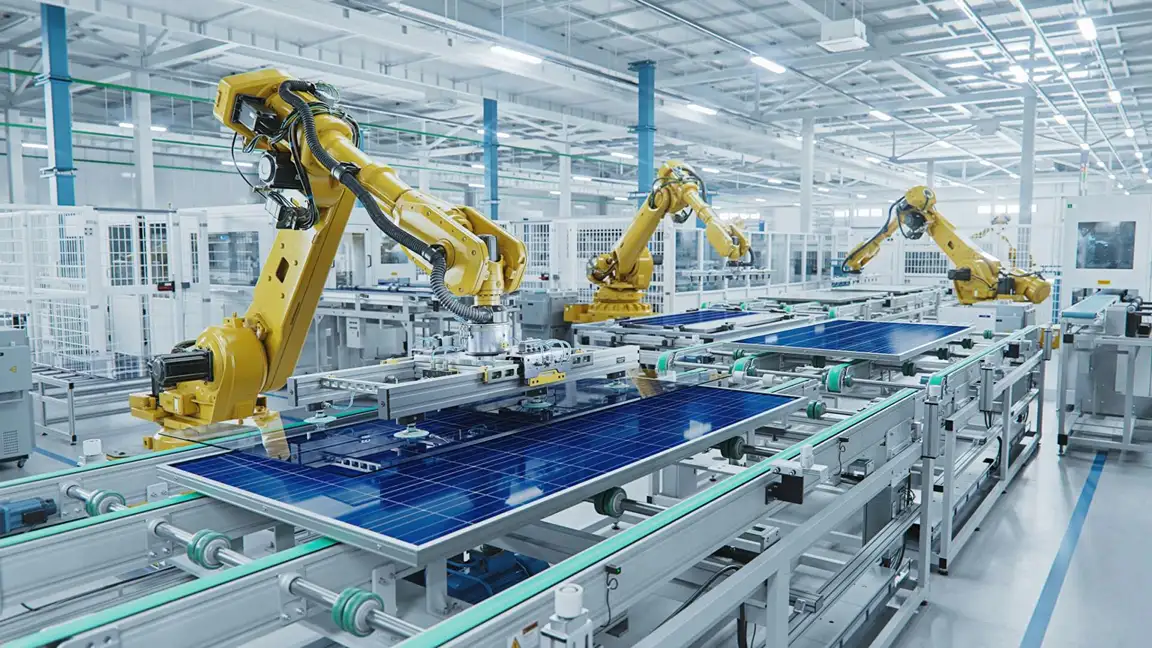Introduction
Manufacturing jobs are the backbone of industrial growth and technological progress. From traditional assembly lines to cutting-edge high-tech laboratories, these roles encompass a wide range of responsibilities, skill levels, and specialties. As automation, global trade, and shifting consumer demands reshape the global economy, the manufacturing sector continues to evolve, creating new and exciting career opportunities. Whether you’re exploring your first role or seeking to advance your career, understanding the scope of manufacturing or warehouse jobs, as well as the rise of electronic manufacturing services jobs, can help you make informed career decisions.
In this comprehensive guide, we’ll explore different types of manufacturing jobs, the essential skills needed to succeed, common pathways for career progression, and how the industry is adapting to meet future challenges and innovations. With increasing demand for faster production, smarter logistics, and sustainable practices, the global economy is placing greater reliance on efficient manufacturing operations. As a result, the demand for manufacturing or warehouse jobs continues to grow, offering long-term career potential, competitive pay, and job stability for skilled and motivated individuals.
Types of Manufacturing Jobs
1. Production Line and Assembly Roles
Production and assembly roles are among the most common manufacturing jobs, involving tasks like assembling parts, operating machines, and maintaining workflow efficiency. These positions are crucial in both traditional factories and electronic manufacturing services jobs, where precision and consistency are vital.
Workers often operate in fast-paced settings, using tools like robotic arms or programmable controllers to meet production quotas and ensure quality. These roles offer hands-on experience and are a common starting point for individuals entering the manufacturing or warehouse industry.
Entry-level positions on the line offer a solid path into the broader world of manufacturing jobs, helping workers build valuable technical skills and grow into specialized or supervisory roles as they advance in their careers.
2. Skilled Trades and Technical Roles
Skilled trades and technical professionals, such as machinists, electricians, maintenance technicians, and welders, play a critical role in the smooth operation of manufacturing facilities. These individuals are responsible for setting up, maintaining, and repairing the equipment and systems that keep production lines running efficiently and safely. Their technical expertise is essential across all types of manufacturing jobs and often requires hands-on training, apprenticeships, or industry-recognized certifications.
For example, a maintenance technician working in a food production facility might inspect conveyor systems, troubleshoot electrical faults, calibrate sensors, and ensure compliance with safety protocols—all to minimize downtime and prevent costly delays. These roles demand a strong understanding of mechanical and electrical systems, as well as the ability to think critically and act quickly under pressure.
Skilled trades offer excellent earning potential and long-term career stability, especially as older generations retire and the demand for technical talent grows. These professionals are in particularly high demand in industries that rely on continuous production cycles, including automotive, aerospace, and electronic manufacturing, where highly specialized equipment must be maintained at peak performance.
For individuals exploring manufacturing or warehouse jobs that combine hands-on responsibilities with critical thinking, problem-solving, and long-term security, skilled trade and technical roles represent a future-proof and fulfilling career path. As modern production environments adopt more advanced technologies, the need for experienced tradespeople continues to grow, making these positions an essential part of today’s manufacturing jobs landscape.
3. Quality Control and Inspection Jobs
Quality control professionals are responsible for ensuring that products consistently meet required standards and specifications throughout the manufacturing process. This often involves performing visual inspections, conducting functional tests, monitoring production workflows, and identifying any issues that may impact product quality or safety. These roles are especially critical in electronic manufacturing services jobs, where even minor defects can lead to product recalls, customer dissatisfaction, or significant financial losses.
Technicians in quality control use a variety of tools, including precision measuring instruments, software-based quality management systems, and advanced testing equipment, to verify compliance with both internal quality benchmarks and external regulatory standards. In highly regulated sectors such as aerospace, automotive, and medical device manufacturing, attention to accuracy, documentation, and traceability is crucial for maintaining both product integrity and consumer trust.
These positions are ideal for individuals seeking manufacturing or warehouse jobs that emphasize precision, problem-solving, and a strong commitment to quality assurance. Quality control roles offer structured work environments and long-term growth opportunities, making them one of the most respected and reliable paths within manufacturing jobs. For those who value analytical tasks and take pride in maintaining high standards, this area of manufacturing jobs can be both professionally rewarding and crucial to the success of modern production operations.
4. Engineering and R&D Positions
Engineers in the manufacturing sector are the driving force behind innovation, process design, product development, and continuous improvement. Whether it’s creating more efficient systems, developing new technologies, or enhancing existing product lines, engineering and research and development (R&D) roles are central to the advancement of modern production. These positions are most commonly found in advanced manufacturing settings and typically require a degree in engineering or a related field, along with strong problem-solving and analytical skills. For those pursuing high-tech manufacturing jobs, engineering roles offer exciting opportunities to shape the future of production.
Mechanical engineers, industrial engineers, electrical engineers, and manufacturing process engineers contribute significantly by optimizing workflows, reducing material waste, improving safety protocols, and integrating automation solutions. Many of these roles involve overseeing complex systems, collaborating with cross-functional teams, and leveraging data to make informed decisions that enhance production output and product quality.
These jobs not only command higher-than-average salaries but also often come with opportunities for advancement into leadership roles, project management, or specialized R&D functions. Professionals in electronic manufacturing services jobs often work at the forefront of technological change, developing next-generation devices, refining circuit board production, or integrating smart manufacturing tools powered by data and AI.
Engineering and R&D roles offer some of the most intellectually stimulating and future-focused paths within manufacturing jobs. For those with a passion for technology, design, and innovation, these positions represent a unique blend of challenge and reward. As the industry continues to evolve, engineering talent will remain crucial in shaping the future of manufacturing jobs across all sectors.
5. Logistics and Warehouse Roles
Manufacturing or warehouse jobs encompass a wide range of roles in logistics, inventory control, shipping, and distribution. Professionals in these positions are responsible for managing the flow of raw materials and finished products, tracking shipments, maintaining accurate inventory records, and ensuring timely deliveries to customers or retail locations. These logistics roles are the crucial link between production operations and the end user, demanding excellent organizational skills, attention to detail, and time management.
Warehouse associates, forklift operators, inventory specialists, and shipping clerks play a crucial role in ensuring that materials are available when needed and that finished goods are delivered on schedule. With the rise of e-commerce, global supply chains, and just-in-time manufacturing systems, logistics professionals have become crucial to the efficiency and competitiveness of modern manufacturing.
These opportunities are especially prominent in electronic manufacturing services jobs, where precise coordination and fast turnaround times are essential to support high-volume, tech-driven production cycles. As manufacturing jobs continue to evolve with automation and smart technologies, logistics and warehouse roles will remain at the forefront of operational excellence and customer satisfaction.
Skills Needed for Success in Manufacturing
To thrive in manufacturing jobs, individuals should possess a well-rounded combination of technical, physical, and interpersonal skills that align with the fast-paced and evolving nature of the industry:
- Technical proficiency: The ability to operate machinery, interpret blueprints, utilize digital tools, and understand automated production systems is essential for maintaining both efficiency and quality control.
- Problem-solving: Quick thinking and analytical skills help workers troubleshoot equipment issues, reduce downtime, and continuously improve processes on the production floor.
- Physical stamina: Many roles in manufacturing or warehouse jobs involve long shifts, repetitive tasks, and the safe handling of heavy equipment or materials, requiring physical endurance and attention to safety protocols.
- Teamwork: Success in manufacturing environments often depends on strong communication and collaboration with coworkers, supervisors, and cross-functional teams to meet shared production goals.
- Digital literacy: As smart factories and Industry 4.0 technologies become standard, workers must be comfortable using software platforms, sensors, and automation tools to support optimized workflows and data-driven decision-making.
These core competencies are increasingly sought after across all types of manufacturing or warehouse jobs, from entry-level production roles to advanced technical and supervisory positions. Whether you’re pursuing a hands-on opportunity or exploring areas like logistics, engineering, or quality control, building and refining these skills can lead to lasting career success. In today’s competitive job market, professionals who can adapt to new technologies and evolving processes bring tremendous value to employers in all areas of manufacturing jobs.
Career Growth and Opportunities
Manufacturing offers numerous career advancement opportunities. Entry-level roles can lead to supervisory or managerial positions with the right experience and training. Certifications, such as those offered by trade schools or professional associations, can accelerate career growth. High-demand sectors, such as electronic manufacturing services jobs, often provide quicker pathways to higher roles due to ongoing innovation.
Apprenticeships offer a combination of hands-on training and classroom instruction, preparing workers for a variety of manufacturing or warehouse jobs. Certificate programs focus on technical skills like welding, CNC machining, or quality inspection, critical for those starting in manufacturing jobs or looking to transition into electronic manufacturing services jobs.
On-the-job training helps workers learn company-specific procedures that are essential across different types of manufacturing or warehouse jobs. Advanced degrees in engineering or business can unlock senior management positions in both traditional factories and electronic manufacturing services jobs.
Promotion in manufacturing isn’t always linear—employees can move laterally into different specialties such as quality assurance, logistics, or technical support. This flexibility allows professionals to explore various interests while building a stable, rewarding career in manufacturing jobs. With the demand for versatile skill sets on the rise, many professionals are now considering cross-functional training to diversify their career potential.
Emerging Trends in Manufacturing
The manufacturing landscape is evolving rapidly, driven by technological innovation and shifting global priorities. Several key trends are reshaping the industry and redefining what it means to work in manufacturing jobs:
- Automation and smart factories: Advanced robotics, AI, and machine learning are being used to streamline production, reduce errors, and boost overall productivity.
- Green manufacturing: Companies are placing greater emphasis on sustainability, using eco-friendly materials and energy-efficient systems to minimize environmental impact.
- Data analytics and IoT: The integration of sensors and real-time data is enabling predictive maintenance, process optimization, and smarter, more agile operations.
These advancements are not only improving efficiency but also creating entirely new career opportunities. Today’s manufacturing jobs often require a blend of traditional mechanical skills and digital competencies, making them especially appealing to a new generation of tech-savvy workers. Manufacturing or warehouse jobs that leverage smart technologies are helping companies stay competitive in a global market while also offering workers more dynamic and future-ready career paths. Additionally, electronic manufacturing services jobs are increasingly incorporating data science, artificial intelligence, and machine learning into daily operations, bridging the gap between hardware engineering and software innovation.
Tips for Job Seekers
If you’re aiming to break into manufacturing jobs or warehouse roles, there are several strategic steps you can take to improve your chances of success:
- Start with vocational training or community college programs: These offer hands-on experience and foundational knowledge that are directly applicable to entry-level roles.
- Look for apprenticeships and on-the-job training opportunities: Many companies offer paid programs that let you earn while you learn, building real-world skills in a supportive environment.
- Tailor your resume: Highlight relevant experience such as machinery operation, safety protocols, quality assurance, or logistics. Use industry-specific language to stand out to recruiters.
- Research high-demand industries: Sectors such as electronics, automotive, aerospace, and consumer goods frequently hire for manufacturing jobs and offer opportunities for advancement.
- Earn certifications: Credentials in areas like electronics, quality control, Six Sigma, or automated systems can give you a competitive edge, especially in modern production environments.
Many employers in electronic manufacturing services jobs are actively seeking candidates with specialized skills and a willingness to adapt to new technologies. By aligning your qualifications with industry needs and staying up to date with emerging tools and processes, you’ll significantly increase your chances of landing a rewarding role in today’s fast-paced and technology-driven manufacturing landscape.
Conclusion
Manufacturing jobs offer diverse career paths with solid growth potential. Whether you’re interested in hands-on production, logistics, engineering, or quality control, there’s a role for nearly every interest and skill set. As the industry evolves, embracing lifelong learning and adapting to technology will be key to long-term success. For those seeking stable, rewarding careers, manufacturing remains one of the most promising sectors to explore. With industries like electronic manufacturing services experiencing job growth and a continuous need for skilled talent in manufacturing and warehouse roles, now is an excellent time to build a career in the dynamic world of manufacturing.






